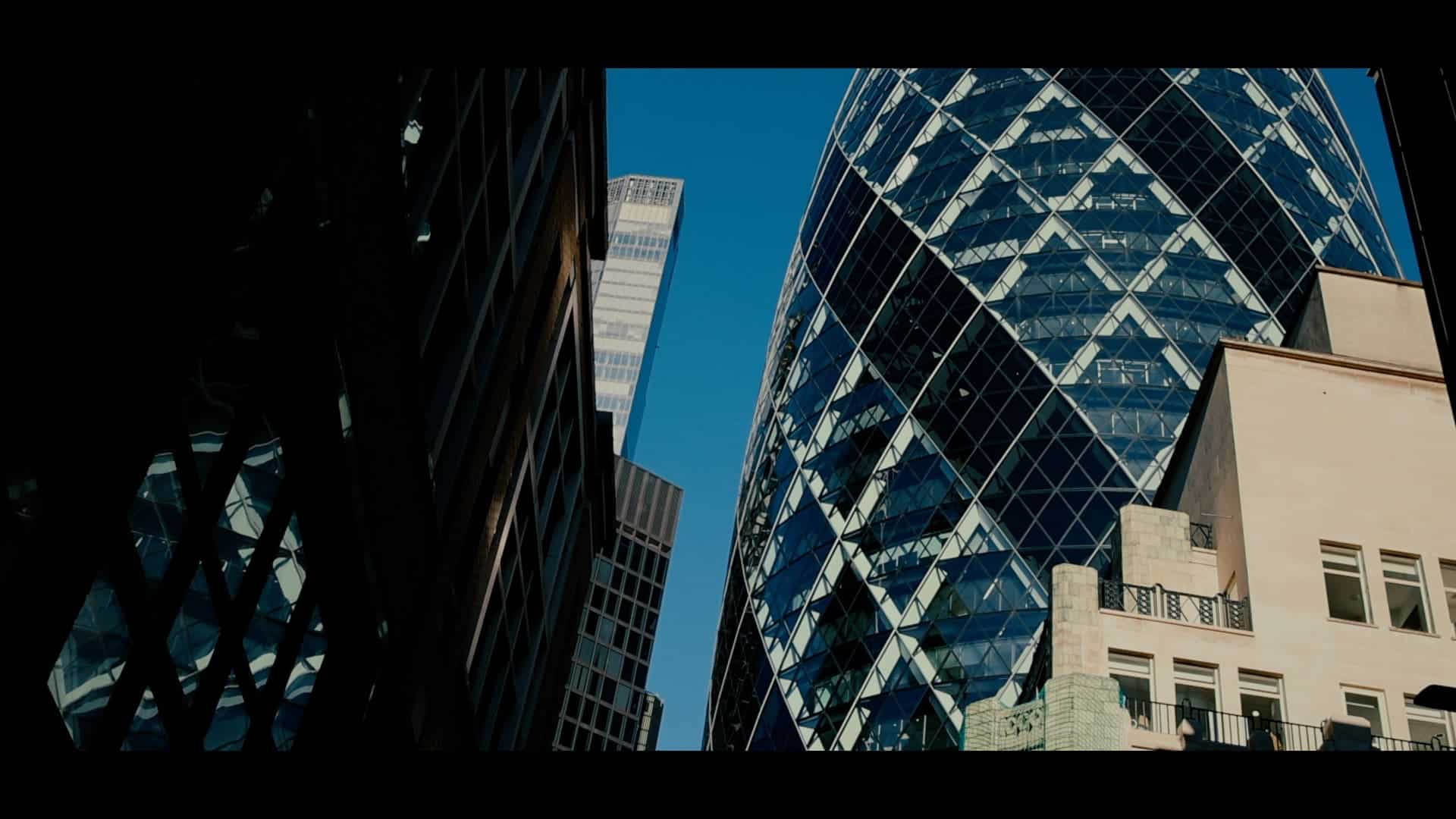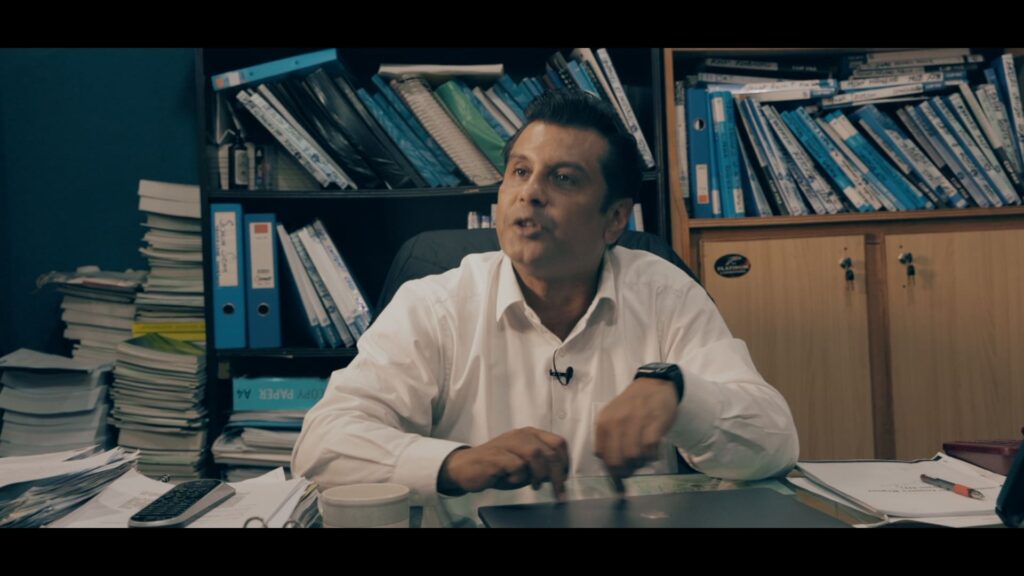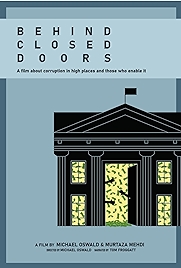Michael Oswald’s latest lid-lifting documentary, Behind Closed Doors, tells the story of ruling elites siphoning wealth off from developing countries and using it to buy high-end property in London. It is a story of familiar elements – the super rich and the London “laundromat” where dirty money is washed clean, plus an acquiescent British government and its supine crime agencies. Thanks to assiduous digging, Oswald and collaborator/writer/producer Murtaza Mehdi reveal precisely how the laundromat works and point the finger at the guilty.
Not all of them – that would be a life’s work. Instead, a select few cases stand for the whole. It is, in any case, pretty much the same story every time.
In a whirlwind tour of the territory, first up is Jomo Kenyatta, the founding father of post-colonial Kenya who came from very little and went on to become the country’s first president and its biggest landowner. As John Allan-Namu of Africa Uncensored, explains, the Kenyatta wealth was gained by simple appropriation (“That’s mine,” in effect) and means that to this day the family remains a significant political force – Jomo’s son, Uhuru, was the country’s president until September 2022.
The story repeats itself in oil-rich Azerbaijan, where the oligarchical Aliyev family also own vast swathes of land, more properties than they can count, plus hotels and banks, the twist here being the unholy alliance the Aliyevs struck with the global oil company BP. They also have a big friend in the UK’s Prince Andrew (a laugh went up at the screening I was at when the beleaguered prince’s big face popped up).
And then Pakistan and the Sharifs, two of whom, Nawaz and Shehbaz, have been Prime Minister. And in laundromat style it’s a case of rinse and repeat – wealth vastly beyond what can be explained by business dealings. There’s a telling clip of an exchange between one of the younger Sharifs, Hassan, and journalist Tim Sebastian on the BBC’s HardTalk programme, about who really owns the swish central London pad Hassan is living in while completing his studies. I’m only renting, Hassan offers, I’m just an ordinary student. Another laugh.
Oswald’s earlier documentary, In The Spider’s Web, detailed British expertise at offshoring wealth in tax havens, especially former colonies. Behind Closed Doors continues the theme, with stories about high-net-worth individuals being advised on hiding or laundering “their” money in London itself. It is an ideal city because UK regulation of ownership is lax to the point of uselessness.
The Pandora Papers made this documentary possible. The 11.9 million leaked documents published in 2021 by the International Consortium of Investigative Journalists lifted a lid on the offshoring activity of current and former world leaders, billionaires and celebrities. Which is why Tom Stocks of the Organized Crime and Corruption Reporting Project is able, with red pins stuck on a wall map, to show exactly where $700m of Aliyev family real estate can be found in London (no surprises here – it’s all Kensington, Mayfair, Knightsbridge etc).
Rachel Davies-Teka of Transparency International explains the concept of the Politically Exposed Person (the one whose fingers are most likely to be in the till) and London as the “libel tourism” capital of the world, where the ever-present threat of the SLAPP (Strategic Lawsuit Against Public Participation) stifles investigative journalism. This makes London a particularly welcoming destination if you’re a big thief with a huge bag of swag.
Understandably, the criminals don’t want to talk about any of this and one feature of Behind Closed Doors is Oswald and Mehdi’s difficulty in getting anyone in authority to respond to questions either. Requests to various regulators, particularly in London, repeatedly hit a brick wall. But the silence in itself is instructive.
So it’s something of a coup to have got Imran Khan, then prime minister of Pakistan, to talk about the asymmetrical power relations in dealing with theft on this scale. Developing countries don’t have the resources to track down money that’s been expertly spirited away, he says; meanwhile, at the other end, the developed countries don’t care enough to do anything about it.
Shortly after the interview Khan found himself removed from office, having been voted out. He claims his own party members were paid $1m apiece by the US for their votes. Having an anti-corruption agenda makes you a target.
As it did journalist Arshad Sharif (no relation to Nawaz and Shehbaz), another interviewee whose investigations into the financial irregularities (and impossibilities) of the Sharif family became a thorn in their side. He became the victim of a “targeted killing” in October 2022 while hiding out in Kenya. There was also an assassination attempt on Imran Khan’s life in November 2022.
Oswald started out making documentaries about financial engineering (97% Owned and The Princes of the Yen), moved on to fiscal chicanery (The Spider’s Web), then switched focus again for The Man Who Knew Too Much, which was much more a story of out-and-out political skulduggery. He makes them all in his spare time (amazingly) and over time they have become noticeably more hard-nosed.
Behind Closed Doors is the most “doorsteppy” so far, and shines a cleansing light on the shady practices of a kleptocratic elite and their enablers. What happens next is down to the rest of us.
© Steve Morrissey 2023



Could it be that Arshad Shariff was lured by the Kenyan powers? To stop the release?
Could be, Sajeda, I just don’t know. All I did was watch the documentary and report back on it. If anyone else knows… ?
When can we expect this documentary covering Pakistan military and pdm mafia available for public ?
Asif, Short answer: I don’t know. But if you go to https://behindcloseddoorsdoc.com/ and register they’ll let you know. Sorry I cannot be more helpful. Steve
How to watch this Documentary ??
Hi Neo, It’s on Apple TV at the moment. It will probably roll out to other platforms at some point. The website is probably the best and most up to date source of information. https://behindcloseddoorsdoc.com/
Cheers
Steve